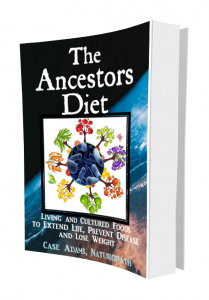Sodas, Fries, Snacks Elevate Diabetes Risk
Research has determined in a large study that a diet rich in soft drinks, fries and snacks substantially increases the risk of type 2 diabetes.
In this article
More than 20,000 people followed
The research, from the The Netherlands’ Utrecht University Medical Center, followed 20,835 Dutch people. The researchers monitored the diets and diet patterns of the patients through questionnaires and cross-referenced these with the incidence of type 2 diabetes among the subjects.
The analysis allowed the researchers to separate the subjects’ diets into two general patterns. The first pattern found a variety of foods, which included diets rich in fruits, vegetables and lean protein foods were accompanied by a lower risk of diabetes. Those subjects with a dietary pattern with increased intake of soft drinks, fries and snacks, however, had an increased incidence of type 2 diabetes.
The dietary analysis found that those in the highest quarter percentile of this dietary pattern (increased intake of soft drinks, fries and snacks) had a 70% higher incidence of type 2 diabetes than those in the lowest quarter percentile of this dietary pattern.
Additionally, type 2 diabetes increased to more than twice the incidence among subjects who were in the highest quarter percentile together with less physical activity.
Increased physical activity also decreased the incidence of type 2 diabetes among those who were in the highest quarter percentile of eating more soft drinks, fries and snacks. The risk of type 2 diabetes decreased from 70% more incidence to 35% more incidence in those who got more exercise.
The researchers concluded: “A high score on a pattern high in soft drinks, fries and snacks and low in fruit and vegetables was associated with higher risk of type 2 diabetes in overweight and obese subjects especially among physically less active individuals.”
The hard news on soft drinks
As we break down the increased risk to the type of consumption, we find that soft drinks are linked to diabetes, as well as cardiovascular diseases, metabolic syndrome (which includes diabetes and cardiovascular disease), non-alcoholic fatty liver disease, gout in men, obesity, increased dental caries and gum disease. Many have connected this to the increased level of sugar in the diet, and newer research has linked this to increased consumption of high fructose corn syrup (HFCS).
For example, in a recent study of over 2,700 Taiwanese teenagers, researchers from Taiwan’s National Yang Ming University found that those who drank more beverages sweetened with sugar and HFCS had three to five times the risk of being obese, and double the risk of having gout when compared to those who did not drink sodas.
Fried risks
As for fries, research has also connected the eating of fried foods with increased cardiovascular disease, obesity and diabetes. Other risks include breast cancer, as we reported on a recent study showing the increased consumption of acrylamide is linked to greater levels of breast cancer.
Whether the acrylamide content is the only precipitating factor with fried foods has yet to be determined, but there is strong evidence pointing to overcooked oils becoming toxic in themselves. When many oils are heated beyond their smoke point, the fatty acids can convert to trans fats or other types of damaged fats. These can become peroxidized and form lipoperoxides within the body. These lipoperoxides will form greater levels of LDL and VLDL, and will damage the liver and blood vessels, forming atherosclerosis.
Illustrating this effect, in a recent study from the National Academy of Sciences of the Republic of Armenia, researchers found a link between type 2 diabetes and stroke in those with higher levels of lipid peroxidation.
A lethal combo
These two diet issues – increased consumption of refined sweeteners such as HFCS and eating fried foods – come together in the form of many of our snack foods. Many snacks are both sweetened with these refined sugars and deep-fried. These include many of our potato chips, crackers and others. Baked snacks with little or no sugar are healthier, but a survey of snacks in practically any store will reveal that healthier snacks – outside of fruits and vegetables – often require a bit more effort to find.
BPA exposure is also linked to diabetes.
REFERENCES:
Bauer F, Beulens JW, van der A DL, Wijmenga C, Grobbee DE, Spijkerman AM, van der Schouw YT, Onland-Moret NC. Dietary patterns and the risk of type 2 diabetes in overweight and obese individuals. Eur J Nutr. 2012 Jul 28.
Bray GA. Fructose and Risk of Cardiometabolic Disease. Curr Atheroscler Rep. 2012 Sep 5.
Carvalhana S, Machado MV, Cortez-Pinto H. Improving dietary patterns in patients with nonalcoholic fatty liver disease. Curr Opin Clin Nutr Metab Care. 2012 Sep;15(5):468-73.
Lin WT, Huang HL, Huang MC, Chan TF, Ciou SY, Lee CY, Chiu YW, Duh TH, Lin PL, Wang TN, Liu TY, Lee CH. Effects on uric acid, body mass index and blood pressure in adolescents of consuming beverages sweetened with high-fructose corn syrup. Int J Obes (Lond). 2012 Aug 14. doi: 10.1038/ijo.2012.121.
Sanny M, Jinap S, Bakker EJ, van Boekel MA, Luning PA. Is lowering reducing sugars concentration in French fries an effective measure to reduce acrylamide concentration in food service establishments? Food Chem. 2012 Dec 1;135(3):2012-20.
Ronco AL, Stefani ED, Deneo-Pellegrini H. Risk Factors for Premenopausal Breast Cancer: A Case-control Study in Uruguay. Asian Pac J Cancer Prev. 2012;13(6):2879-86.
Tsakanova GV, Ayvazyan VA, Boyajyan AS, Arakelova EA, Grigoryan GS, Guevorkyan AA, Mamikonyan AA. A comparative study of antioxidant system and intensity of lipid peroxidation in type 2 diabetes mellitus and ischemic stroke aggravated and not aggravated by type 2 diabetes mellitus. Bull Exp Biol Med. 2011 Sep;151(5):564-6.
















